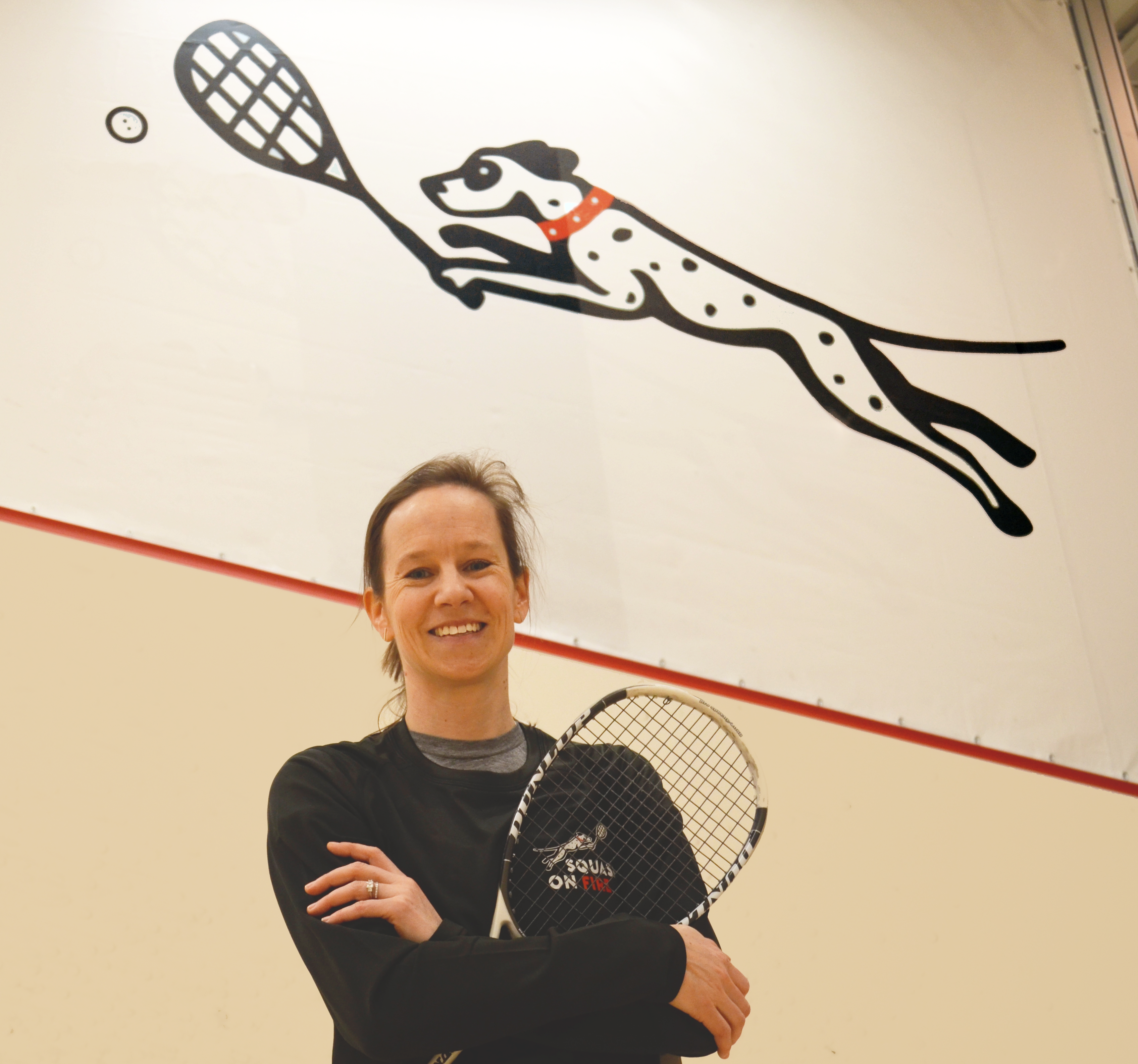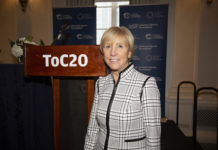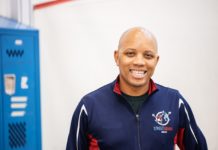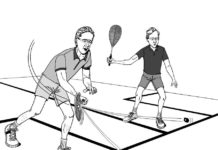Squash on Fire
I grew up playing with Julieanne Harris at Philadelphia Cricket Club. When I began playing, the hardball game was just being phased out. The club did not have any wide courts, so Julie drove me to practice on the only international squash court in town—a converted garage in the back of a house in the Germantown. It’s amazing to think about that, given the number of international courts now in Philadelphia.
The biggest difference between squash in Philadelphia and DC is wearing whites. I remember my very first tournament. It was at Merion Cricket Club. I was nine or ten and a tournament official asked me to turn my white Banana Republic tee-shirt inside out because the graphic on the back was too large. I have had the chance to live in three fantastic cities in my life—Philadelphia, Boston and DC—and while the clubs where I played were all different, the players were always incredibly welcoming and focused on building a community around this great sport. What’s particularly exciting about playing at Squash on Fire is watching all of people who are walking in off the street and picking up a racquet for the first time.
I have never really given the game up—something I’m proud to say. In particular in the past seven years, I have continued to work full-time, raise three children and still play. Now, as executive director of Squash on Fire, I’m finally able to merge a lifelong passion (and pastime) with my professional expertise.
College squash is undoubtedly a bigger and more competitive landscape than when I played at Harvard. The level of play is truly elevated from my time—I graduated in 2002. The matches are thrilling to watch. I love seeing teams that did not exist when I was a collegiate player vie for national championship titles. I also want to applaud the efforts of the CSA to help preserve college squash’s values of sportsmanship, fairness and respect.
When politicians come to play, they typically want to leave their professional personalities outside of the court. I think that’s one of the best things about squash—it is a great equalizer. I did have the chance to play with Senator Kirsten Gillibrand from New York when I first moved down to D.C. She really hustled on court and was much more competitive than I expected.
The pay-as-you-go model is rare in such a busy, metropolitan area. There are so few clubs that requires nothing more than non-marking shoes (and we’ll even loan you a pair) to play. Our courts are honestly the best I have played on. I also love that our bar and restaurant (Upper West Side Café) are located right next to our glass court. We also have amazing technological capabilities. Our courts have video cameras, so in addition being able to watch our exhibition court from a barstool, you can check out what’s going on in the back courts on our nine-screen TV display. We also have streaming capabilities, so when we hold tournaments people can watch online. Squash on Fire’ s central location in DC makes it great for the international events such as the Howe Cup we hosted last year or the Worlds Men’s Team Championship next year.
I have enjoyed playing the Howe Cup regularly since graduating, and I occasionally play in local tournaments or the National Singles. I play in the men’s league here in D.C. After college, I played some doubles in Philadelphia, including at the William White. However, until DC builds a doubles court, my right wall game is sidelined.
The latest book I have read was by another Harvard squash alum Ivy Pochoda. I had read her Visitation Street, so I was excited when Wonder Valley came out a few months ago. Another of my favorite writers and Harvard squash players is Louisa Hall, whose Speak and The Carriage House were excellent reads.
At this point in my life, I would like to bring my mom back for a hit. She started squash in her fifties—after years of carting me around and watching me play—and was just getting into a routine of playing in Philly Cricket’s mid-morning ladies clinics when she got sick with cancer. Now that I’m a mom, it would be fun to feed her balls and talk about what it’s like to wrangle kids while maintaining your sanity.





